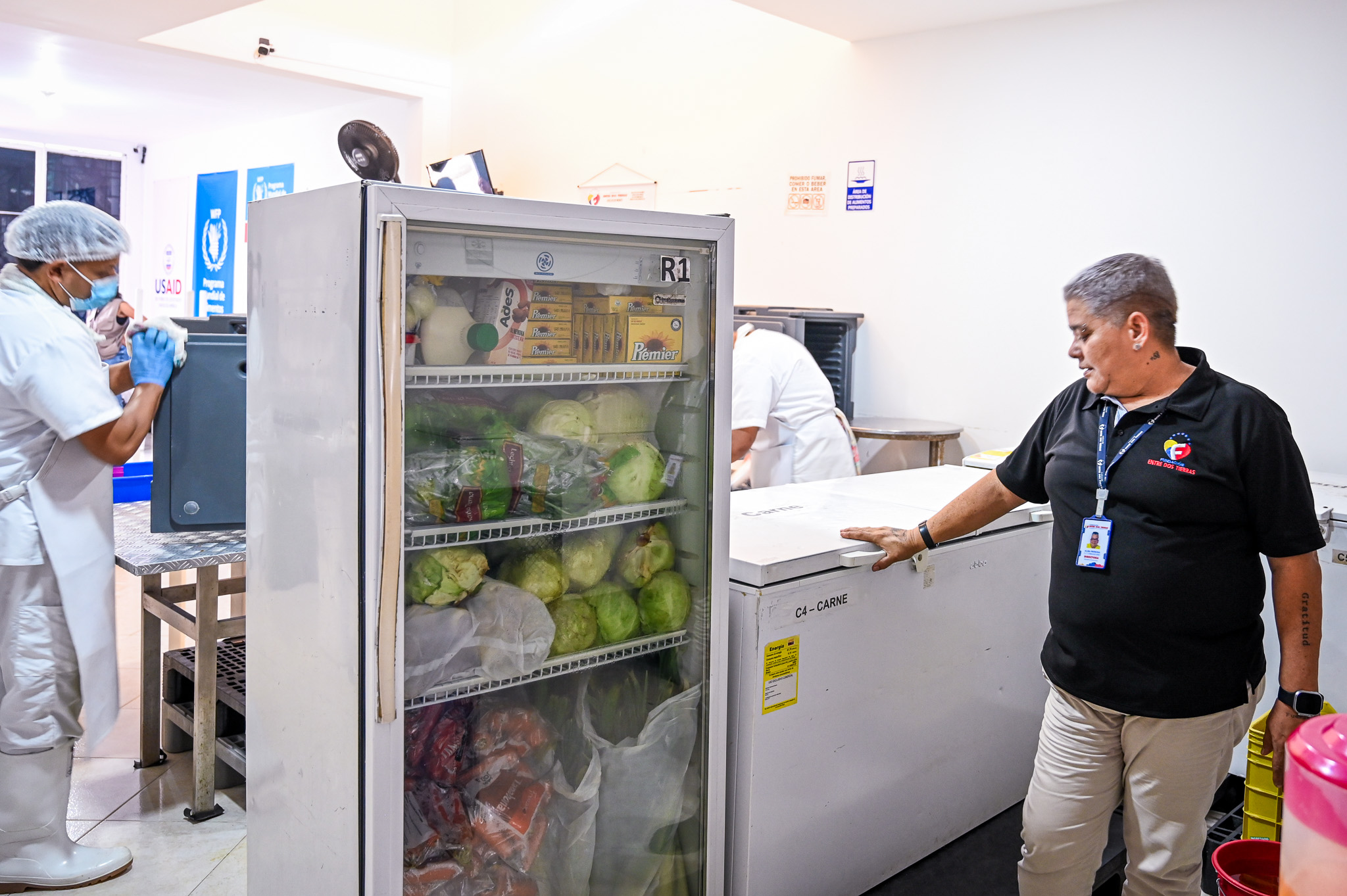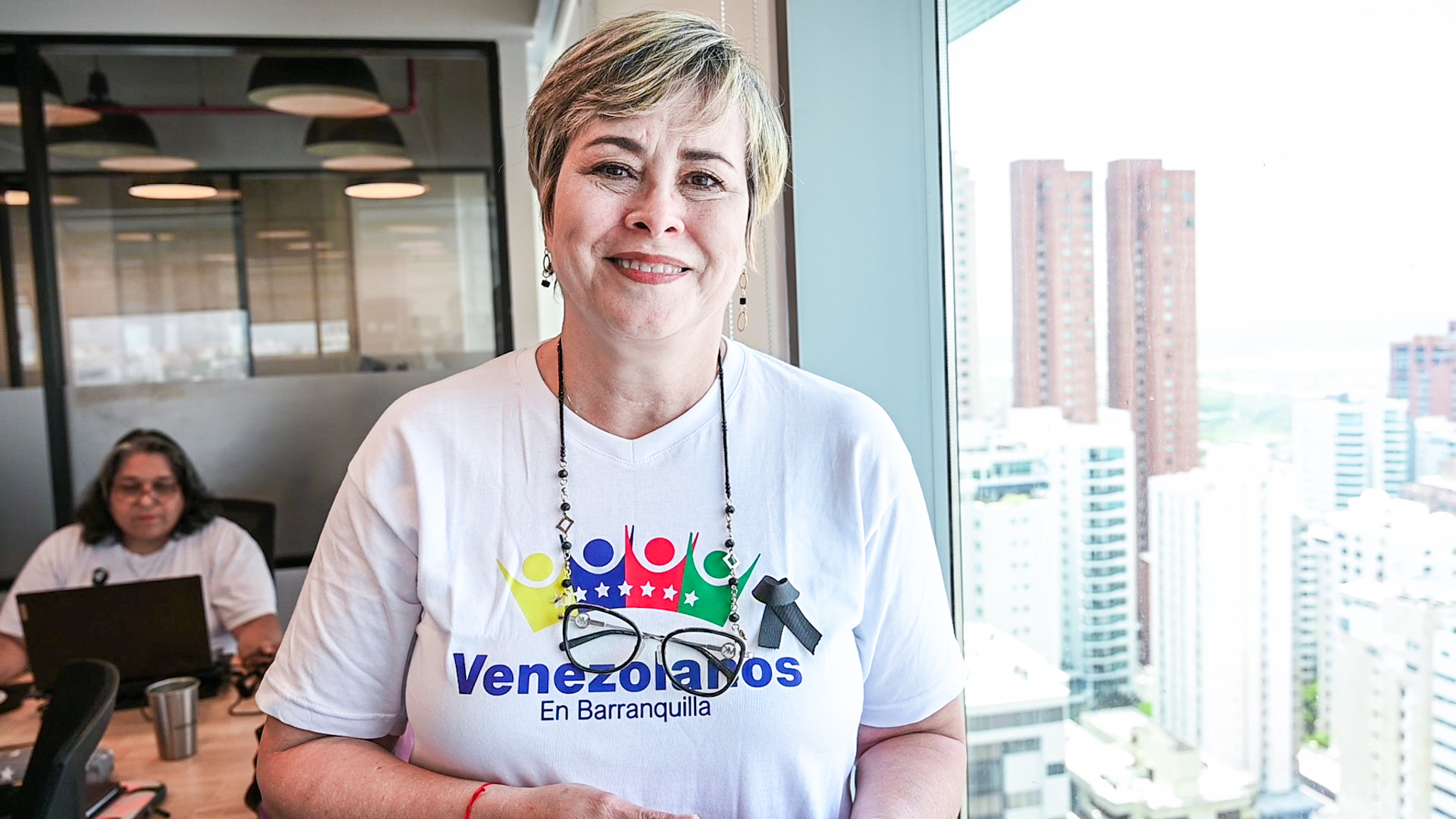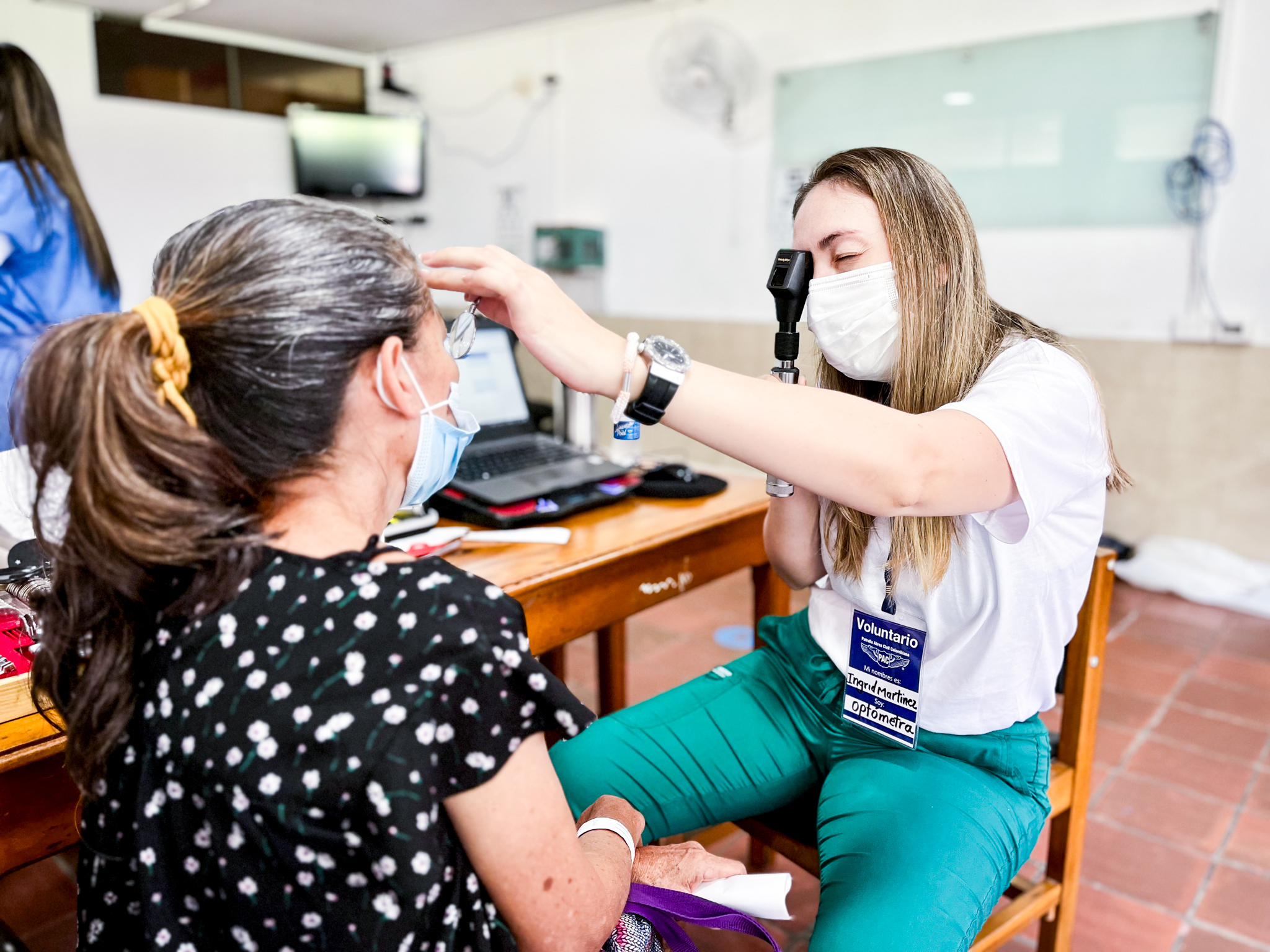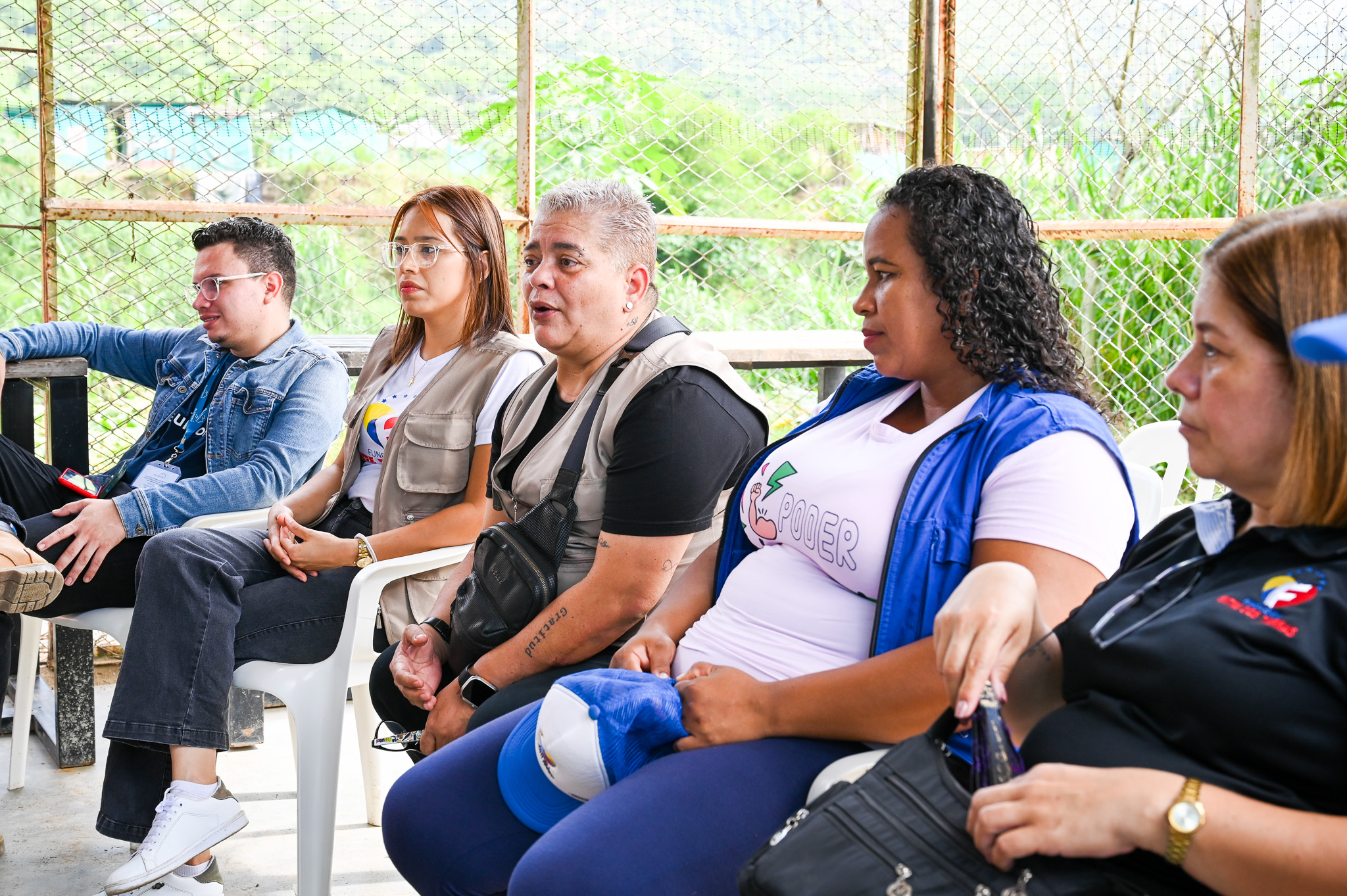For Alba Pereira, a normal day in Bucaramanga, Colombia, means feeding hundreds of families. Her organization, Fundación Entre Dos Tierras (“Between Two Lands Foundation”), was one of Blumont’s three local partners supporting Venezuelan refugees and migrants across the country.
When Pereira, who is Venezuelan herself, started this work in 2013, she never imagined that it would turn into a full-scale assistance organization. She officially opened Fundación Entre Dos Tierras in 2017 and began working with our Acogida program in 2021.
The Acogida program, which is funded by the U.S. Department of State’s Bureau of Population, Refugees, and Migration, aims to bridge humanitarian gaps for Venezuelan migrants and vulnerable Colombians while building community connections.
Fundación Entre Dos Tierras was serving hundreds of meals a day at its community kitchen while also providing Blumont with critical insight and operational support for essential items distributions and awareness sessions. Pereira’s familiarity with migrants’ needs and local neighborhoods helped us decide whom to support and how to do so.
As we partnered with local organizations to extend our reach and impact, we also worked alongside all three partners to support their own initiatives. For Fundación Entre Dos Tierras, that meant strengthening internal processes and preparing for long-term funding prospects. Pereira brought on more full-time staff and set their operational focus. Before long, she believed the team could operate at a level suitable to apply for their own funding from the U.S. government or other international actors.
“The most important thing we learned is to work as a team,” said Pereira.

Pereira, right, in the community kitchen where her team feeds hundreds of migrants (not pictured for privacy) a day for free.
In Barranquilla and Soledad, on the northern coast of Colombia, our team worked with Venezolanos en Barranquilla (“Venezuelans in Barranquilla”), an aid and advocacy group run by Venezuelan migrants Pilín León and Juan Carlos Viloria Doria. Together with our Acogida team, they helped organize community outreach events across multiple neighborhoods, which informed Venezuelan migrants and vulnerable Colombians about the services Blumont and other local actors have to offer. Over time, Venezolanos en Barranquilla has developed activities to ensure communities are getting adequate health, education, and other services.

Pilin León, center, is the president of Venezolanos en Barranquilla, an organization that helps connect Venezuelans to services and aid.
“We started as an organization helping others–figuring out where people are and what they need, going house to house. We worked that way for five years,” said León, the group’s president. The group formalized its structure and approach after working with a patchwork of funders and in-kind donations. The partnership with Blumont gave them a steady funding stream and opportunities to build internal capacities. “The past two years have really helped us and taught us a lot,” said León.
Leveraging their knack for public outreach, Venezolanos en Barranquilla has become a well-known group in the region. “The partnership with Blumont helped us focus and choose our goals,” said Leon.

Ingrid Martinez, a volunteer from Patrulla Aérea Civil Colombiana evaluated an optometry patient at a health clinic held in Bucaramanga in April.
Connecting Venezolanos en Barranquilla and Fundación Entre Dos Tierras is our third local partner, Patrulla Aérea Civil Colombiana (“Colombian Civil Air Patrol”). The organization brought more than 55 years of experience to our collaboration. This helped the Acogida team conduct health clinics throughout the country. As Patrulla flew in doctors, specialists, and a range of medical supplies and medicines, Pereira’s team in Bucaramanga and León and Viloria’s team in Barranquilla raised awareness about the clinics and helped with event coordination. More than 15,700 people came to the clinics to receive free services including vaccinations, eye exams, dental work, pre-natal care, and pediatrics.

Members of Fundacion Entre Dos Tierras joined Acogida meetings in Bucaramanga to listen to community needs and support Blumont’s programming.
These partnerships helped Blumont reach more families in the first three years of the Acogida program. In conjunction, Fundación Entre Dos Tierras, Venezolanos en Barranquilla, and Patrulla Aérea Civil Colombiana worked toward their own long-term goals and prepared themselves for future work.
Pereira also believes there has been a community shift as a result of these partnerships. “There are several places where the perception of who a migrant is has changed, where there has been true integration, and where there has been a true response,” said Pereira. “I think that it has been the best outcome of this partnership for us as an organization.”



